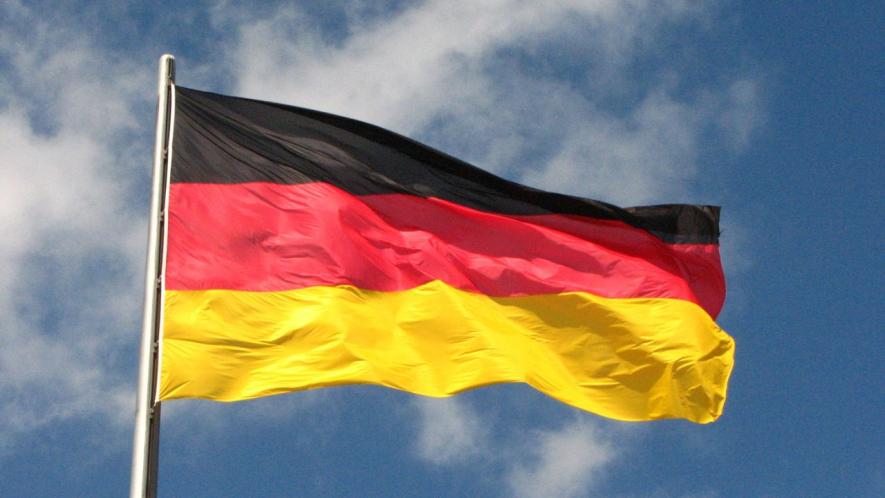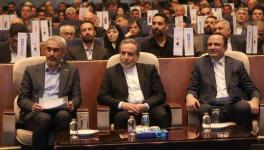Germany in Crisis

Image Courtesy: Wikimedia Commons
Federal elections will be held in Germany in February 2025. These elections were necessary following collapse of the coalition government headed by Chancellor Olaf Scholz. This collapse of the Scholz government is symptomatic of a deeper crisis that is afflicting Germany and the European Union.
In the 1980s, the US-led Plaza Accords dealt an adverse blow to the growth trajectory of Germany by compelling the Deutsche Mark to be appreciated with respect to the US Dollar. This happened because the political compulsions for the government of the USA to enable Germany's further growth became less urgent as the role of the Soviet Union faded.
Moreover, the world economy transitioned from a system with a gold backed US Dollar as a reserve currency to another system of US Dollar as a reserve currency with the petrodollar. This new system, with no capital controls, required Germany and later the European Union to rein in fiscal policy so that the Deutsche Mark’s and later Euro's value relatively to the US Dollar could remain reasonably stable. This also meant that fiscal policy could no longer be used in Germany to significantly steer economic growth as was previously possible.
Consequently, the German economy was reorganized on the basis of four factors. One, the ratio of wages to labor productivity declined especially in eastern Germany. This increase in price competitiveness which could have had a negative impact on domestic demand was somewhat avoided due to a number of factors such as the following. Two, German manufacturing was able to rely on low cost Russian energy that increased its price competitiveness without compromising domestic demand. Three, German big business partially shifted its production to China and over time China also emerged as a significant market for German firms. Four, German exports to other countries in the European Union, as well shift of some manufacturing to some countries in Eastern Europe, bolstered both demand and price competitiveness.
However, as the USA began its efforts to try and contain China and encroach on Russia's security, this fourfold arrangement that underlay German economic growth began to unravel.
Germany, though initially reluctant, was obligated by the USA to join its strategic conflict with China and Russia. To begin with, German high technology exports to China began to be restricted under pressure from the USA. Further, Chinese exports to Germany were restricted to varying degrees once again due to the direction of the USA. Lastly, the supply of Russian energy to Germany and Europe was restricted by the USA by both blowing up the Nordstream pipeline as well as the adoption of increasingly restrictive policies as regards imports of Russian energy. This has been partly replaced by high priced US energy exports to Germany and Europe.
The combination of these measures has had devastating consequences on the German and European economies. German manufacturing has become uncompetitive leading to de-industrialization. German big business, partially supported by policy makers, have responded in three ways to this crisis. Firstly, greater financialisation at the expense of enterprise. Secondly, principally shifting more of their production to China. Thirdly, and less significantly, shifting production to the USA. The latter move has been induced by US industrial policy that favors manufacturing in USA at the expense of manufacturing in Germany.
Among the hardest hit by the ongoing de-industrialization of Germany are its small and medium enterprises (Mittelstand) who do not have the option of moving abroad or financialisation to the same extent as big business. Ongoing efforts to squeeze wages in Germany to increase price competitiveness are unlikely to succeed since the other supporting factors are ceasing to operate due to German policy choices that are still significantly influenced by USA.
Political discourse in Germany is largely, but not exclusively, engaged in demonizing Russia and China and blaming non-European migrants for the travails afflicting the country at present. However this neo-fascist xenophobia merely obfuscates the actual problem whereby the USA is trying, with partial success, to convert Germany and Europe into an exclusive economic zone partly analogous to what European colonial powers did with their colonies.
However, there are some political forces in Germany who not only understand but also publicly articulate the need for economic renewal centered on workers and small and medium enterprises.
This renewal is not possible without strategic autonomy. The latter necessarily involves as a first step, German and European firms operating alongside Global South (including Chinese and Russian) firms, on a mutually beneficially basis, in global production networks.
As far as the possibility of such a renewal is concerned, a distinction needs to be made between the political mainstream in Germany that involves alliance of the Christian Democratic Union and the Christian Social Union, the Social Democratic Party of Germany, Green Party, Free Democratic Party etc., the neo-fascist Alternative for Germany (AfD) and the left wing Sahra Wagenknecht Alliance – Reason and Justice (BSW).
The mainstream political parties, who are mostly composed of cosmopolitan neoliberals are unable and unwilling to make the political case for strategic autonomy.
The neo-fascist AFD is likely to be similar to the Italian neo-fascist party Brothers of Italy (FDL) whose leader Giorgio Meloni has been Prime Minister since 2022. All her pre-election statements about strategic autonomy became infructuous after she became Prime Minister of Italy, in the face of the imperialist hegemony of the USA. Instead she and her government have doubled down on the politically feasible part of her neo-fascist agenda: a differential squeeze on wages of different segments of the working people. Likewise, the neo-fascist AfD’s overtures in policy matters regarding reconnecting with Russian energy are likely to be merely mediating processes through which the attempts of the incoming government of the USA to try and drive a wedge between Russia and China may proceed. Moreover, AfD is unlikely to form the next government but the mainstreaming of its neo-fascist xenophobia will lead to even mainstream political parties who are likely to form the next government to unleash a further differential squeeze on wages of different segments of the working people in Germany.
The BSW does make a political case for strategic autonomy thereby enabling a strategy that does not squeeze wages or small and medium enterprises. However, a necessary condition for the BSW to emerge as a full-fledged political alternative is the unity of the Left that will require political-organisational work beyond the forthcoming elections.
The future of Germany and therefore a way out of its current crisis will not be determined solely by next month’s elections. But the political articulation of what really ails Germany at present will be an important beginning in achieving a better future.
The author is Professor, Department of Economics, Satyawati College, University of Delhi, Delhi.
Get the latest reports & analysis with people's perspective on Protests, movements & deep analytical videos, discussions of the current affairs in your Telegram app. Subscribe to NewsClick's Telegram channel & get Real-Time updates on stories, as they get published on our website.























